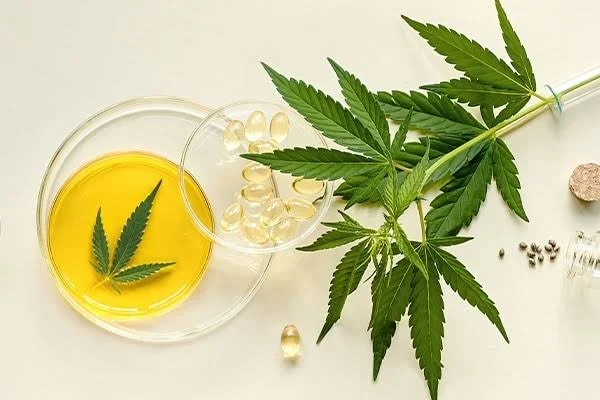What Is THC?
Introduction
In the realm of cannabis, few acronyms carry as much weight as THC. Tetrahydrocannabinol, or THC, is the psychoactive compound found in cannabis that is responsible for its intoxicating effects. However, beyond its recreational use, THC has garnered significant attention for its potential medical benefits and legal implications. In this article, we delve into the multifaceted nature of THC, exploring its effects, medical applications, and legal status, with a focus on Virginia's perspective.
Related: Do THC Suppositories Really Work?
The Science of THC
At its core, THC interacts with the endocannabinoid system in the human body, specifically binding to cannabinoid receptors in the brain and nervous system. This interaction triggers a cascade of effects, leading to alterations in mood, perception, and cognition. The intensity of these effects varies depending on factors such as dosage, method of consumption, and individual tolerance levels.
Read Also: What’s the difference between Delta-8, Legal THC, and Fake Cannabis?
Medical Applications
While THC is often associated with its recreational use, its medicinal potential is a subject of growing interest and research. In Virginia, medical cannabis laws have evolved to recognize the therapeutic value of THC, particularly in the treatment of conditions such as chronic pain, epilepsy, and multiple sclerosis. By regulating the availability of medical cannabis products containing THC, Virginia aims to provide relief to patients while ensuring safe and responsible use.
Related: Types of Drug Tests (and How to Safely Cleanse THC from Your System)
Legal Landscape
The legal status of THC, both federally and at the state level, is a complex and evolving issue. While cannabis remains classified as a Schedule I controlled substance under federal law, many states, including Virginia, have implemented their own regulations regarding its use. In 2020, Virginia took a significant step towards cannabis reform with the passage of legislation decriminalizing possession of small amounts of marijuana. Subsequent efforts have focused on establishing a framework for the legal cultivation, sale, and use of cannabis for both medical and recreational purposes, with THC playing a central role in these discussions.
Virginia's Approach
In Virginia, the conversation surrounding THC reflects a complex understanding of its potential benefits and risks. While efforts to legalize recreational cannabis are ongoing, the state has prioritized the expansion of its medical cannabis program, allowing patients to access THC-containing products with a physician's recommendation. By emphasizing education, regulation, and harm reduction strategies, Virginia aims to strike a balance between promoting public health and addressing the demands of a changing societal landscape.
Challenges and Considerations
Despite its promise, the widespread acceptance of THC faces several challenges, including stigma, regulatory hurdles, and concerns about misuse. In Virginia, policymakers must navigate these complexities as they seek to implement effective cannabis policies that prioritize public safety and social equity. By fostering collaboration between government agencies, healthcare providers, and community stakeholders, Virginia can develop comprehensive strategies that address the diverse needs of its residents while mitigating potential risks associated with THC use.
Conclusion
As Virginia continues to grapple with the complexities of cannabis policy, the role of THC remains a central focus. From its therapeutic potential to its legal implications, THC represents a dynamic and evolving aspect of the broader cannabis conversation. By approaching this issue with pragmatism, compassion, and evidence-based decision-making, Virginia can chart a course towards a more equitable and informed approach to cannabis regulation, one that prioritizes the well-being of its citizens while acknowledging the complexities of this multifaceted plant compound.
FAQ
-
THC, or tetrahydrocannabinol, is the primary psychoactive compound found in cannabis. It is responsible for the euphoric "high" commonly associated with marijuana use.
-
In Virginia, THC remains classified as a controlled substance under state and federal law. However, the state has implemented regulations allowing for the medical use of THC-containing cannabis products with a physician's recommendation. Efforts to legalize recreational cannabis are ongoing.
-
THC has shown promise in the treatment of various medical conditions, including chronic pain, epilepsy, and nausea associated with chemotherapy. It interacts with the body's endocannabinoid system to produce therapeutic effects, though further research is needed to fully understand its potential applications.




